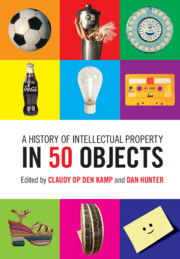Book contents
- Frontmatter
- Dedication
- Contents
- Acknowledgments
- Introduction: Of People, Places, and Parlance
- The Pre-Modern Period
- The Age of invention
- 5 Hogarth Engraving
- 6 Lithograph
- 7 Morse Telegraph
- 8 Singer Sewing Machine
- 9 Uncle Tom's Cabin
- 10 Corset
- 11 A.G. Bell Telephone
- 12 Light Bulb
- 13 Oscar Wilde Portrait
- 14 Kodak Camera
- 15 Kinetoscope
- 16 Deerstalker Hat
- 17 Paper Print
- Modern Times
- The Consumption Age
- The Digital Now
- About The Contributors
8 - Singer Sewing Machine
from The Age of invention
Published online by Cambridge University Press: 12 June 2019
- Frontmatter
- Dedication
- Contents
- Acknowledgments
- Introduction: Of People, Places, and Parlance
- The Pre-Modern Period
- The Age of invention
- 5 Hogarth Engraving
- 6 Lithograph
- 7 Morse Telegraph
- 8 Singer Sewing Machine
- 9 Uncle Tom's Cabin
- 10 Corset
- 11 A.G. Bell Telephone
- 12 Light Bulb
- 13 Oscar Wilde Portrait
- 14 Kodak Camera
- 15 Kinetoscope
- 16 Deerstalker Hat
- 17 Paper Print
- Modern Times
- The Consumption Age
- The Digital Now
- About The Contributors
Summary
THE SEWING MACHINE was one of the most important innovations of the 19th century. Arising out of a series of individual breakthroughs, workable sewing machines emerged on the market in the United States, Britain, and Europe in the mid-1850s. The innovation was described by contemporaries as one of the “wonders of the age,” transforming the labor of all those who worked in the garment industry—seamstresses, tailors, shirt- and collar-makers, cap-makers, glove-makers, hosiers, and more. But the sewing machine also generated disquiet, leading to strikes and protests from tailors and bootmakers, paving the way for the emergence of the ready-made clothing industry, and eventu-ally the sweatshop. In this way, the sewing machine was little different from many 19th century innovations; but the real watershed was how the machine entered the home, as, perhaps, the first domestic appliance. Indeed, one commentator, Andrew Gordon, suggests that the marketing of the sewing machine not only created modern selling practices, but also created the concept of the modern consumer, someone who was engaged in the world of branded products and also dependent on credit for access to these products.
Intellectual property was central to the development of the sewing machine. In 1864, the Sydney Morning Herold reported that the “history of the sewing machine is simply a record of legal proceedings in every possible shape”—by which the paper mostly meant patent litigation, in particular questions of novelty and proper disclosure. In the following decades, the litigation would take a different shape, as sewing machine manufacturers fought each other over the use of trade names and trademarks. In doing so, they would unknowingly lay the foundations for much of modern day trademark law.
Most commentators agree that a workable sewing machine depended on eight or nine interrelated breakthroughs. Perhaps not surprisingly, patent rights were obtained by different persons over each of these elements.
- Type
- Chapter
- Information
- A History of Intellectual Property in 50 Objects , pp. 72 - 79Publisher: Cambridge University PressPrint publication year: 2019



